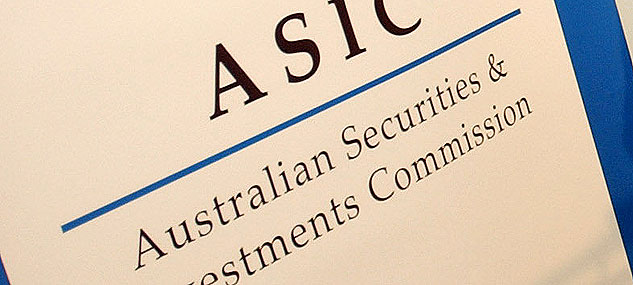ASIC released its guidance on marketplace lending (aka peer-to-peer lending) yesterday to assist providers of marketplace lending products; it includes information about legal Obligations for operators of peer-to-peer lending in Australia. Entities looking to provide marketplace lending are encouraged to use the information sheet to help them understand current regulatory requirements.
What is marketplace lending?
Marketplace lending in the context of ASIC’s guidance is an arrangement through which retail or wholesale investors invest money, seeking to make a return, which is in turn lent to borrowers.
Marketplace lending arrangements commonly involve the use of an online platform, such as a website, on which loan requests are made. The loan request will then typically be matched against offers to invest. Under some arrangements, investors may be exposed to a loan, or a pool of loans; multiple investors may also fund a single loan.
Key obligations that may apply to marketplace lending business models
Under Australia’s current financial services and credit laws, providers of marketplace lending products and related services will generally need to hold:
- For fundraising - an Australian Financial Services Licence (AFSL), and
- For lending - an Australian Credit Licence (ACL) if loans made through the platform are consumer loans.
Fundraising - key obligations
Under the Corporations Act 2001 (Cth) (Corporations Act), there are requirements to ensure that retail investors have access to sufficient information to make an informed decision about whether to invest. There are also strict requirements regulating disclosure and promotional material, to ensure that there are no misleading or deceptive representation made.
There are generally two alternatives for fundraising mechanisms under the Corporations Act:
- Registered or unregistered managed investment schemes (MIS); or
- Debentures
1. Managed Investment Schemes
Operation of a registered scheme
Where a Marketplace Lending Platform (MLP) is offered to retail investors using a managed investment scheme structure, the responsible entity of the scheme will need tor register the scheme with ASIC.
Specific obligations of a responsible entity
As the responsible entity of a registered scheme, the MLP will also have to adhere to specific obligations under Chapter 5C of the Corporations Act, these relate to: a constitution and compliance plan that complies sections 601G, 601GB and 601HA, withdrawal arrangements complying with the requirements for a liquid or illiquid scheme as applicable (see Part 5C.6), duties that must be met by the responsible entity under section 601FC and duties that must be satisfied by the officers and employees of the responsible entity under sections 601FD and 601FE.
Classification of the registered scheme
ASIC considers that MLPs acting as responsible entities will generally need a tailored AFSL authorisation to operate a registered scheme that proposes to undertake marketplace-lending activities.
The AFSL, ASIC Form 5100 Application for registration of a managed investment scheme, scheme constitution and compliance plan should outline that the scheme’s purpose is to facilitate marketplace lending and include a summary description of the scheme’s structure.
Operation of an unregistered scheme
A managed investment scheme only made available to investors that are wholesale clients, does not need to be registered. The MLP will need an AFS licence that covers any financial product advice, dealing, or custodial or depository financial services activities undertaken in relation to the scheme (unless exemptions apply). However the provider may still need an authorisation for custodial or depository services even where a custodian with an AFS licence that covers custody is appointed to hold the scheme assets.
Do any licensing exemptions apply?
ASIC have advised that in order to operate a registered or unregistered managed investment scheme and to issue interests, the MLP will generally need its own AFSL to provide the financial services. Although they understand that some MLPs may seek to rely on exemptions from holding an AFS licence under the Corporations Act, ASIC considers that there are limitations on the use of these exemptions from holding an AFS licence. These limitations prevent MLPs from operating a managed investment scheme and issuing interests in the scheme in reliance on these exemptions.
Disclosure obligations
Where a retail investor is acquiring an interest in a managed investment scheme, a Product Disclosure Statement (PDS) will need to be prepared by a MLP and provided to investors. MLPs may also have ongoing disclosure obligations to retail clients under the Corporations Act (refer to ASIC Regulatory Guide 234 for further information).
2. Debentures and other securities
Structures other than a managed investment scheme may be used by MLPs such as debentures or the issue of securities or derivatives. These structures may attract other obligations under the Corporations Act, such as where debentures are issued to retail investors, a prospectus may need to be issued and Chapter 2L of the Corporations Act will apply. MLPs will need to ensure that they understand and comply with the obligations relevant to their particular business structure.
Lending - Key obligations
Where consumers loans are offered through a marketplace-lending platform, person involved in entering the loan and operating the platform will need an ACL and must comply with the requirements set out in the National Credit Act and National Credit Code.
An ACL is required for the following credit activities that may occur on a marketplace lending platform:
- the provision of credit and carrying on a business of providing credit;
- performing obligations, or exercising the rights, of a credit provider on the credit provider’s behalf; and
- providing credit services by suggesting a consumer apply for a particular loan, assisting a consumer to apply for a loan, or acting as an intermediary between the consumer and a credit provider to secure a loan.
Some important issues MLP’s need to consider include: how they set up their platform, the different entities involved in operating the platform and the activities they engage in, who needs to hold an ACL and what authorisations those persons need. Further, ACL holders need to comply with responsible lending requirements set out in Chapter 3 of the National Credit Act, which have come under heavy scrutiny recently.
Other considerations and requirements
Applications for relief
In some circumstances a MLP may be able to demonstrate that it would be unreasonably burdensome to comply with a requirement under the Corporations Act or National Credit Act and Code. ASIC possesses discretionary powers to give relief from the requirements of the Corporations Act and National Credit Act and Code. Guidance on how to make an application is set out in ASIC Regulatory Guide 51 and ASIC Regulatory Guide 136.
Advertising of marketplace lending products
It is important that promoters (which can include the product issuer or a third party such as a financial adviser) ensure that advertising material is clear, accurate and balanced.
Registration of security
MLPs may facilitate secured loans and where they do, they would be expected to take all reasonable steps to correctly register and protect any security interests, including registration on the PPSR, or if relevant the Torrens Title Register.
More information
For more information refer to the Information Sheet 213 (INFO 213) issued by ASIC on 21 March 2016.


















